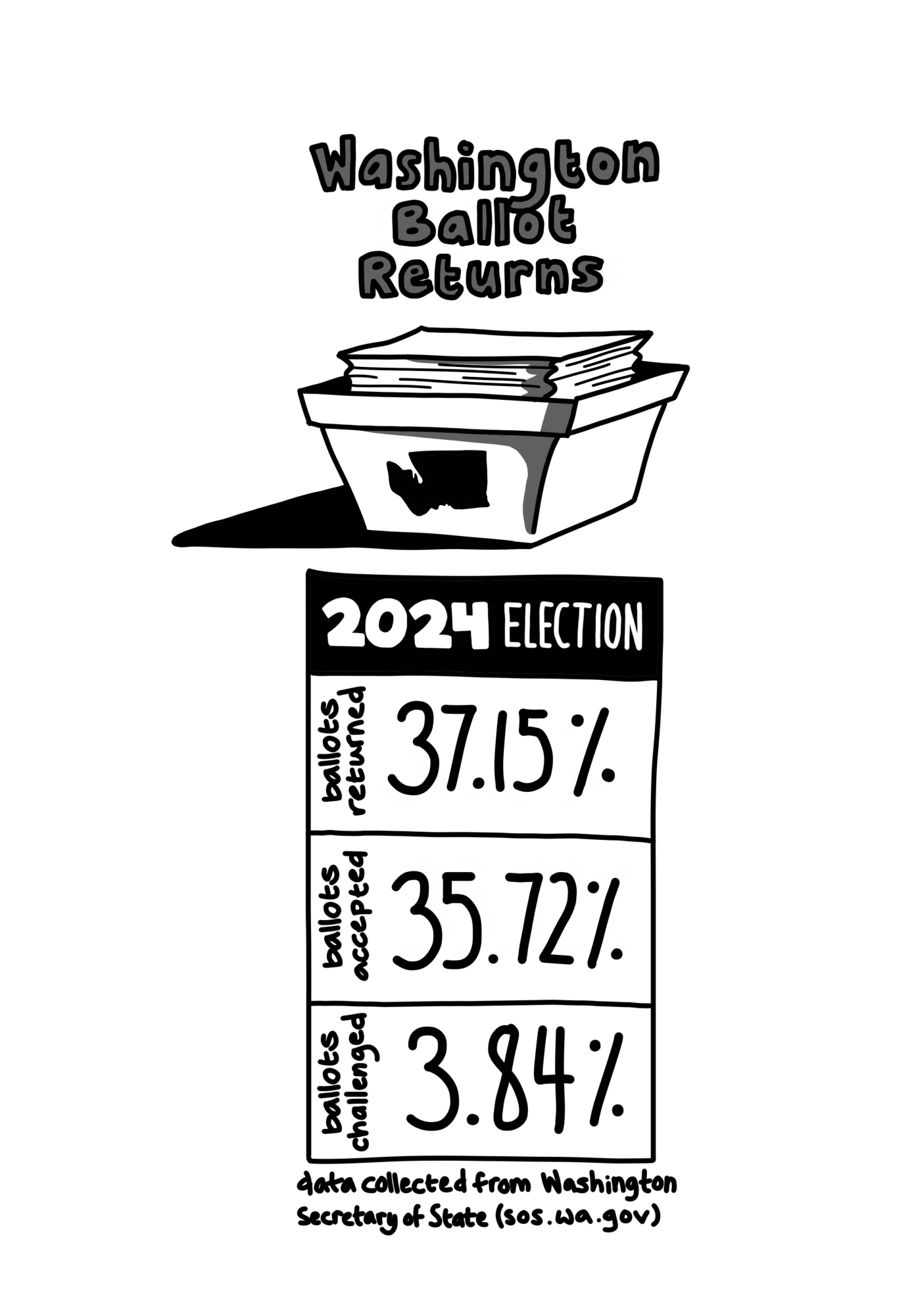
In response to a discrepancy in reported totals, election workers from the Walla Walla and Thurston Counties conducted a manual recount of 13,915 ballots from Walla Walla County’s presidential primary. Auditor Karen Martin attributed the discrepancy to result upload software and not the sorting machines. Observers from both the Democratic and Republican parties were present to ensure transparency with strict rules and no direct interaction with workers or ballots. The process unfolded in an environment with cameras and sealed doors, aiming to verify and certify the election results.
The presidential primary is a crucial step in selecting a party’s candidate for presidency. They stand out as unique electoral processes because voters are meant to openly declare their party affiliation and select their preferred candidate within that party. Kari Isaacson, Chair and Director of the Walla Walla County Democrats, shared her satisfaction with the recount.
“When we heard there was going to be this recount and it was with such short notice, we put the word out for our entire list of PCOs (Precinct Committee Officer). We had identified 54 shifts of three hours each, within six work stations during three days (that went actually for only two). We were able to fill all of our spots with 30 volunteers immediately. The auditor did an orientation or training before the start of the new groups that were going to observe to make sure that rules were being followed during the process,” Isaacson said.
Isaacson highlighted the swift mobilization of volunteers for the recount, filling every spot despite the short notice. Following this recount, discrepancies emerged notably with ballots that could not be counted because of unclear voter intent.
“We had almost 500 people who cared enough to vote, but whose ballots, for one reason or another, could not be fixed because they either chose both parties or neither. Those ballots cannot be counted because it was impossible to determine voter intent. I was surprised to hear that the one missing ballot they were looking for was marked all over the place. It was not that one vote was miscast for one party or the other,” Isaacson said.
Derrick Nunnally, Deputy Director of External Affairs and Office of the Secretary of State, and Stuart Holmes, State Elections Director, shared the role of the Secretary of State in the manual recount in an email to The Wire.
“Because this was a local process, we deferred a lot of communications to the local folks that were in charge of operating this process (procedures of observers, logistical stuff). We talked to members of the local media to explain generally the legal framework (this wasn’t a state-mandatory recount but definitely under the threshold and the law, this was one that was a decision of the auditor) and made sure that they were aware to not disclose any private information like names in ballots or such,” Nunnally said.
Nunnally emphasized local management of the recount process, with communication channels primarily directed towards local authorities and media. The recount, though not state-mandated, fell within legal parameters and was initiated at the discretion of the auditor, Karen Martin. Holmes highlighted the identification of human errors during the recount, which revealed discrepancies necessitating improved procedures.
“What we were able to find is that there were some human errors. As a result of those, this was an opportunity to train and give Walla Walla County some guidance on what steps they can take in the future. In elections like this, they are balancing a lot with limited resources and staff, which is definitely challenging. We observed where the ‘easy button’ was pressed one too many times. We coach and train the counties to separate the partisan ballots into two piles (Democrats and Republicans) and we observed that in one of the batches that we had questions about, those were intermixed. We needed to do this manual count to be able to uncover those things and understand that the paper matches what the technology is showing,” Holmes said.
Although it was a successful hand recount, locals don’t seem to be very happy about the office overall. Jeff Strickler, a Walla Walla resident, shared his thoughts on the recount.
“In terms of the process, the fact that the two parties have the ability to bring in volunteer poll watchers who are able to sit and watch but not otherwise engage in the process … is really positive. The local Democratic has taken an active role as poll watchers over the last few elections …We are relying upon an elected county auditor and her team to do their jobs and fix whatever issues are causing these delays,” Strickler said.
He pointed out the presence of volunteer poll watchers from both parties, emphasizing their role in observing the process without active involvement. Additionally, Strickler drew attention to broader debates surrounding election security, noting a lack of substantiated claims of fraud despite heightened scrutiny.
In recent years Republican candidates have raised concerns about what they see as a lack of security in election, and have passed bills requiring identification for voters. Advocates have opposed these laws on the grounds that they decrease turnout and discriminate against voters of color.
The recount has been completed, but no date has been sent for the results to be certified by the Washington Secretary of State.



